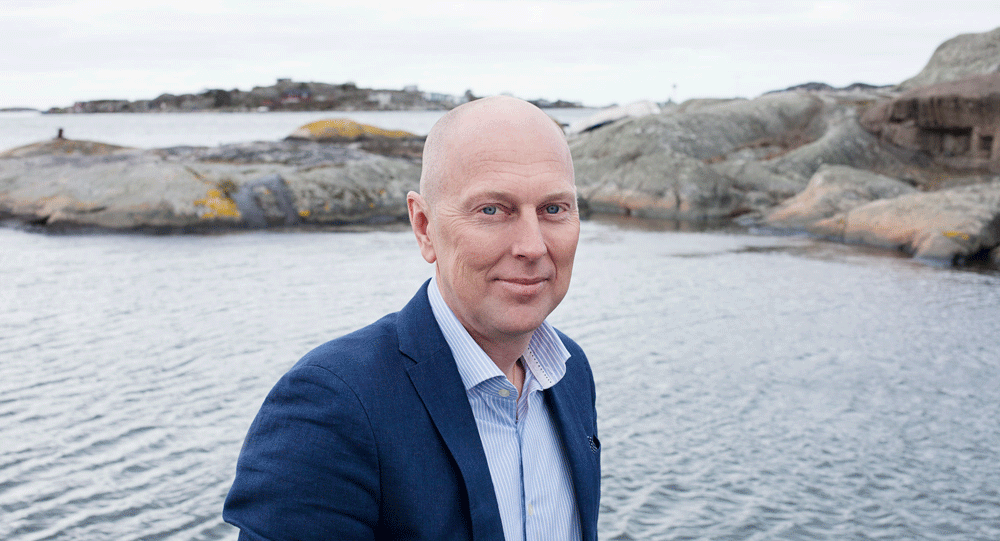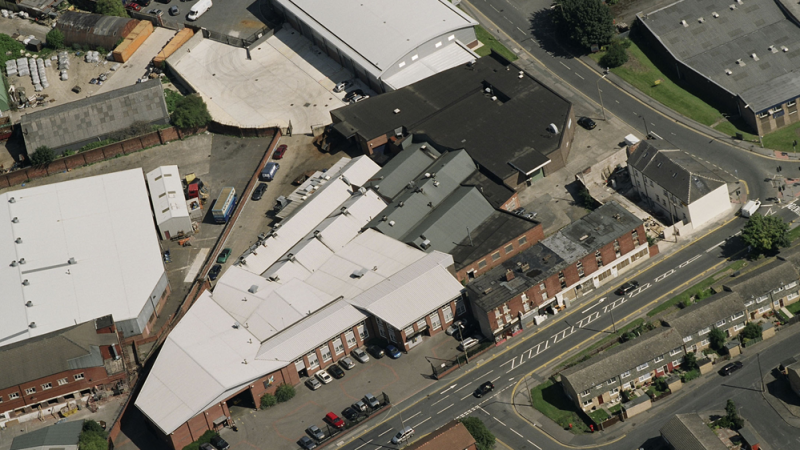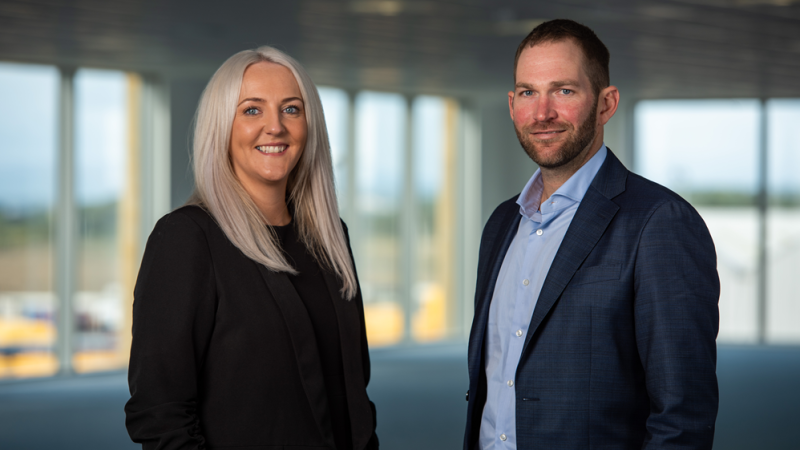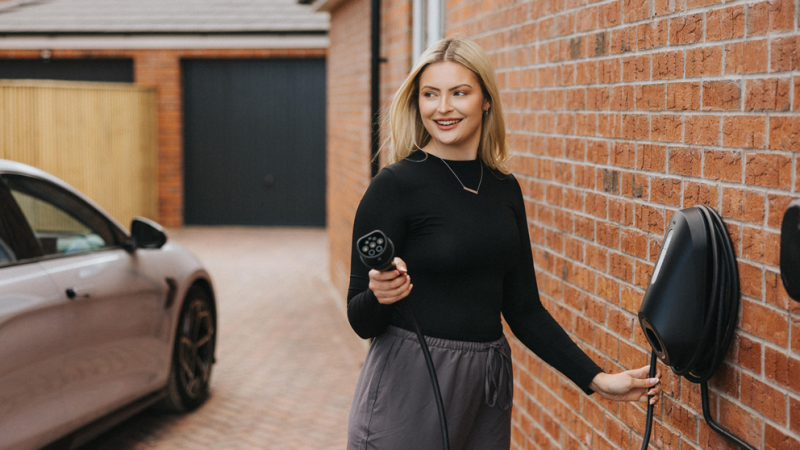Family-owned shipping company Terntank has taken a significant step towards clean shipping by integrating onshore charging and battery storage and by introducing environmentally friendly fuels in order to reduce emissions.
Terntank operates primarily in the Baltic Sea and the North Sea, with a focus on port calls in Finland, Norway, and Sweden. Additionally, its vessels regularly visit ports in other countries, such as the Netherlands, Belgium, the United Kingdom, Ireland, Spain, and France.
The company’s roots can be traced back to the early 20th century. What started in 1904 as a grocery shop on the island of Donsö in the archipelago of Sweden’s west coast has turned over the century into a major shipping, chartering and ship management business and a leading tank operator in the Nordics. Today, the fourth generation has taken over at the helm of Terntank, a classic family business that continues the legacy of the founders.
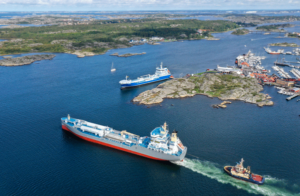 Electric shipping
Electric shipping
Environmentally friendly operations have been at the core of the business from the very beginnings. “From our roots in 1904 on Donsö, Sweden, to a fourth-generation family-owned business, our ethos of sustainable and responsible business practices with our customers and employees has been steadfast,” stated the company in its latest Sustainability Report.
Terntank’s modern fleet has an average age of 9.3 years, which is significantly below the global average. A significant stride towards promoting clean shipping was achieved by introducing electrical power to the company’s vessels – the Hybrid Solution® combines a battery system and an onshore power supply with conventional engines, enabling Terntank to operate its vessels 100% on electricity when handling cargo in ports.
Its focus on environmentally friendly fuels has also been strong. Terntank’s first trials with biofuel blends were conducted in 2018 and proved successful. “To replace traditional fuel oil with LNG was a major decision,” admitted Claes Möller, CEO Terntank Ship Management AB.
This changeover to the far cleaner fuel brought about huge improvements for the environment: CO2 emissions were reduced by 20%, SOx by 99%, NOx by 97% and particles by 99%. Terntank’s Avic series vessels are now able to operate on 100% biofuels.
Project Methanol
To achieve its ambitious goal of attaining zero GHG emissions by 2040 , the company intensified its focus on development, and presented the innovated Hybrid Solution Plus series with a methanol propulsion system that enables vessels to run on the new type of electro fuels, also known as eFuels.
The Hybrid Solution Plus series represents a game-changing shift towards sustainability in the maritime industry, showcasing innovation and a resolute commitment to a cleaner future.
In June 2024, Terntank announced that it had secured a grant agreement with the European Climate, Infrastructure and Environment Executive Agency (CINEA) for the eMETHANOLxW Solution.
This project will demonstrate a combination of foldable suction sails and a dual-fuel engine on the first Hybrid Solution Plus series vessel, uniquely designed to fit one of the first coastal tankers in Europe to use e-methanol as a principal energy source in its operations.
A conventional two-stroke diesel engine in Terntank’s new-build vessel to be delivered in March 2025 will be converted into a dual-fuel engine, which can run both on (e-)methanol and diesel. Development of the dual-fuel engine is ongoing, and the conversion will be made in 2026.
The suction wing sails technology will be demonstrated for the first time on a tanker vessel, enabling the best possible optimisation of the system, increasing the energy efficiency of the vessel. The project aims to start operation by e-methanol and wind assistance in January 2027.
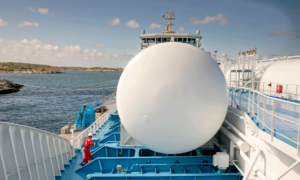 Next generation hybrid tanker
Next generation hybrid tanker
A high scalability potential lies on both clean technologies onboard different types of cargo ships on new buildings and existing fleet. The plan is to deliver four methanol-ready and wind-assisted Hybrid Solution Plus vessels between 2025 and 2027, making Terntank’s shipping operations fully carbon-neutral.
Terntank has now on order a total of eleven hybrid tankers that can operate on diesel, biofuel, or methanol, with the latest five featuring wind-assist technology, which is projected to cut emissions by up to 19%.
Designed by Kongsberg Maritime, a Norwegian technology enterprise, and constructed at CMHI Jinling Shipyard in Yangzhou, China, these ships are part of the company’s “Setting Sail For The Future” series. These 15,000 dwt vessels represent a significant step forward in reducing greenhouse gas emissions and air pollutants, aligning with the company’s long-standing commitment to environmental responsibility.
The next-generation hybrid tanker will be one of its kind within the tanker segment. The first ship in this series, ordered in November 2022, is under construction and will be delivered, as mentioned earlier, in March 2025, with the fifth expected in July 2027. Claes Möller affirmed that the combination of good design and innovative systems to be installed on a new-build vessel will significantly reduce its carbon footprint.
Towards net zero
Pushing for greener shipping would not be possible without a dedicated workforce. Terntank strives for a company culture where the ships and the shore-based organisation are as closely connected as possible to create an atmosphere in which all the personnel are considered colleagues, irrespective of whether they work at sea or ashore. This approach is underscored by Terntank’s remarkable 98% retention rate.
The company says that training its employees to maintain the highest of standards is an ongoing process; it offers both online and in-person training courses. Interestingly, around 80% of the senior officers started their seagoing careers on the company’s vessels and have worked their way up in the organisation.
With committed staff and a strong focus on decarbonisation, the company’s plans for the future are clearly defined. “With renewable methanol we are edging closer to our vision of emission-free shipping. In 2024, we are staying on the course with innovation, and are set on expanding the use of zero-emission fuels in our fleet by the decade’s end,” affirmed Claes Möller.
